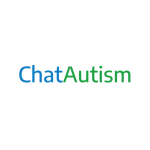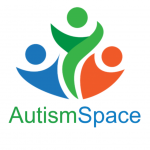For help emotional health and wellbeing when it is not a crisis or emergency, there is an extensive range of support services and resources available
Click the boxes below to find out more information
Please note, many of these services are not autism specific
If you are autistic, you may find it helpful to tell the person you speak to – and explain what they can do to help you, e.g. use clear language, speak slowly to give you time to process information, give opportunities for you to ask questions to clarify your understanding
Family members or carers of autistic people may find some of these resources and organisations useful for supporting their own emotional health needs
____________________________________________________________________________________________________________________________________________________________________
The listed services and links to websites maintained by other organisations are included on here to assist you and are provided in good faith. Some may incur costs. Their inclusion does not imply that the Leicestershire Partnership Trust endorses or supports them, nor does the absence of a service imply that we do not support them
____________________________________________________________________________________________________________________________________________________________________
Resources and services for autistic people
Helpful documents for your mental health and wellbeing - Leicestershire Partnership NHS Trust
Here you can find helpful documents for your mental health and wellbeing. You can view, download and print these at home or work.
Mental Health Guides - Leicestershire Partnership NHS Trust
We have written a series of self help guides covering a wide range of topics such as depression, anxiety and stress which offer users the opportunity to find out more about the causes of mental health issues and provide tools to work through feelings and emotions.
Our self help guides contain verified information and are written by NHS Clinical Psychologists with contributions from service users, healthcare and voluntary sector staff.
Resources to support children's mental health on other Leicestershire Partnership Trust websites
Parent resource page on LPT website: lptnhs.com/SupportForParents; Health for Kids: Grownups CMHW hub: lptnhs.com/ChildrensMentalHealth; Health for Teens CMHW hub: lptnhs.com/TeenMentalHealth
While you wait - Mental Health and Wellbeing Leicestershire Partnership NHS Trust
Mental health and wellbeing – Leicestershire Partnership NHS Trust
This page brings together useful information to help you prepare for your appointment, look after your physical and mental health, and access support if you need it.
It can be hard to know what practical actions or changes will help your health and wellbeing while you wait. To help focus on the right areas, you could think about things that:
- are challenging in your day-to-day life
- worry you the most
- you want tackle first
- matter to you now
- are strengths you want to build on
Parent to Parent Emotional Support Helpline
The Parent to Parent Emotional Support Helpline is a free service for parents and carers of autistic children.
It offers understanding, listening, and support from trained volunteers who are also parents of autistic children.
- Free and confidential
- Run by volunteers with lived experience
- A safe space to talk about worries or challenges
You can call to share your feelings, ask questions, or simply have someone listen.
The helpline is designed to be welcoming and easy to use.
For more information, including how to contact the helpline, please click here.
National Autistic Society Online Community
The Online Community is a safe space where autistic people, families, and carers can connect.
You can share experiences, ask questions, and get support from others who understand.
- Free to join
- Available 24/7
- Moderated to keep everyone safe
It is designed to be simple and welcoming, so you can take part at your own pace.
For more information or to join, please click here.
Family Lives early intervention and crisis support to families
Family Lives provides targeted early intervention and crisis support to families. They aim to provide support and information to help families avoid getting to crisis point.
They have a comprehensive suite of resources available to everyone – including a national helpline, online chat, email support.
Their trained staff aim to listen and give you the space to talk, helping you to explore your situation and identify the way forward. They let you, the caller, direct the conversation to wherever you want to go.
They will take what you say seriously, and not minimise it.
They may ask you some questions to help them fully understand your situation and explore your feelings, and help you talk through options or consider specific organisations which may be able to help you.
They do their best to provide you with as much helpful information and support and encouragement as they can – to put you, as the expert on your own life, in a good position to make whatever choices are best for you.
Core to their organisational values is to ensure you will be listened to with empathy, care and respect.
They cannot offer legal or medical advice.
Family Lives also have a resource-rich website, online courses and more.
To find links to all of the above services, visit the Family Lives homepage here:
For families in Leicester, Leicestershire and Rutland in need of more intensive support, Family Lives provide a Whole Family Relationship Support Service
This offers families comprehensive help and guidance that builds
stronger relationships and gives strategies to overcome
difficulties and challenges, together
For more information about the Family Lives Whole Family Relationship Support Service. click the following link:
Resources to support with situational mutism (often known as selective mutism)
Autistic people may be more likely than non-autistic people to have situations and times where they are unable to speak. This is commonly known as ‘selective mutism’ and increasingly also as ‘situational mutism’. These terms are often shortened to ‘SM’.
People with SM can speak in some situations but not in others. They do not choose when they will speak and when they won’t. They want to speak but are physically unable to speak in some situations for anxiety-based reasons.
To learn about SM and how to offer the best support, click the following links:
Selective Mutism Information & Research Association (SMIRA)
All About Situational Mutism: A Guide for Allies – Reframing Autism
Togetherness – free courses to support with emotional health and wellbeing for people who live in Leicester, Leicestershire and Rutland
Leicestershire Partnership NHS Trust have partnered with Togetherness to provide range of free online courses for teenagers and adults to help them understand and take care of their own emotional health and wellbeing
Modules can be accessed any time and worked through at your own pace
Courses for teenagers include:
- Understanding your brain
- Understanding your feelings
Courses for adults include:
- Understanding your relationships
- Understanding your own trauma
They also provide online courses to help parents, carers, family members and professionals improve the emotional l health and wellbeing of the children and young people they care for.
All courses are free for anyone with a Leicester, Leicestershire or Rutland postcode.
Users need to set up an online account and use the access word ‘CURVE’.
This will give them lifetime access to all current and future courses.
For more information, including how to register and access the courses, please click here
Tellmi - digital mental health support
Tellmi provides free digital mental health support, 365 days a year (on Android, IOS, and the web).
Click this link to download the app:
It has been commissioned by our local Integrated Care Board and is available for anyone aged 11+ living within Leicester, Leicestershire or Rutland.
Tellmi is cost free and operates 365 days a year (on Android, IOS, and the web).
It enables people to help themselves by helping each other. The Tellmi community is anonymous and age-banded. All posts and replies are risk assessed by moderators and counsellors intervene when high-risk posts are made.
You can use filters to have conversations about particular topics such as autism or anxiety – or both.
For those seeking additional help, Tellmi offers 1-2-1 text-based, solution-focused therapy with a qualified therapist. This aims to help people think positively about their future and to identify their existing skills and strengths.
You can refer yourself for the 1:1 text-based therapy sessions by clicking the link below.
For a child or young person, a referral can be made by parents, carers or professionals.
Vita Health Group - free talking therapy
Anyone over 16 living in Leicester, Leicestershire or Rutland can self-refer to Vita Health Group. This is a free service that offers talking therapy to help with range of mental health issues such as anxiety, depression, panic, sleep difficulties, OCD, trauma. They have interventions in various formats – such as 1:1, group, video call, telephone call.
Find more details here:
Click here to view their website
Telephone: 0330 094 5595
Samaritans
Mental health support service available 24 hours a day, every day of the year. All ages.
Telephone: 116 123
This number is free to call from both landlines and mobiles
Email: jo@samaritans.org
Shout
Mental health text support service. This service is free, available 24 hours a day, every day of the year.
Text SHOUT to 85258
Sane
Offers support to anyone with a mental health problem or who is supporting someone else. The helpline is a confidential service for anyone aged 16 or over.
They are available from 4:30pm – 10:30pm every day. Please note your phone provider may charge you to use this service.
Telephone: 0300 304 7000
Mind
Offer a safe space for you to talk about your mental health. They can also signpost you to other services so that you receive the most appropriate support. Lines are open 9am to 6pm, Monday to Friday (except bank holidays). This is not a crisis service. Calls from UK landlines are charged at local rates. Charges from mobile phones vary.
Telephone: 0300 102 1234
Calm
CALM’s website has a helpline and a live chat that are open from 5pm to midnight everyday, 365 days a year. Suitable for all ages
Clare and me
Clare is artificial intelligence that gives you a safe space to speak your mind freely by listening and asking questions. You’ll be guided through self-reflective exercises & grounding techniques. Suitable for 18+ years old only
The Relationships Centre
The Relationships Centre provides free Family Counselling, Individual Counselling, Online and Telephone Counselling, Relationship Counselling and Sex Therapy. TEXT 07566 819842 for more information. Telephone: 0116 2543011. Please be aware these other service might have costs involved. Suitable for all ages.
Previously called Relate Leicestershire.
Papyrus
Papyrus is the UK charity dedicated to the prevention of suicide and the promotion of positive mental health and emotional wellbeing in young people. Phone services are operated by Hopeline UK
Telephone: 08000 684 141
Email: pat@papyrus.uk.org
Autistica
Autistica has a dedicated anxiety and autism hub, which is full of helpful research-backed information for positive coping strategies for anxiety for autistic people.
Togetherness – free courses to support with emotional health and wellbeing for people who live in Leicester, Leicestershire and Rutland
Leicestershire Partnership NHS Trust have partnered with Togetherness to provide a range of free online courses for teenagers and adults to help them understand and take care of their own emotional health and wellbeing.
Modules can be accessed any time and worked through at your own pace.
**Courses for teenagers include:**
– Understanding your brain
– Understanding your feelings
**Courses for adults include:**
– Understanding your relationships
– Understanding your own trauma
They also provide online courses to help parents, carers, family members and professionals improve the emotional health and wellbeing of the children and young people they care for.
All courses are free for anyone with a Leicester, Leicestershire or Rutland postcode.
Users need to set up an online account and use the access word ‘CURVE’.
This will give them lifetime access to all current and future courses.
For more information, including how to register and access the courses, please click here.
AccessAva – Free legal information about your rights to social care
Need help navigating social care? AccessAva, by the National Autistic Society and Access Social Care, provides AI-powered advice, based on legal expertise, for autistic individuals and their families in England.
Get easy-to-understand health and social care information at the click of a button.
The AccessAva chatbot can:
– Provide you with guidance on social care issues, rights and entitlements
– Guide you through a specific situation and generate a letter that can help in resolving your issue or challenge
– Be accessed at any time
AccessAva is designed to be simple to use and understand, but we know that navigating social care can be complicated. Wherever possible, Easy Read documents are available.
AccessAva is powered by AI technology and trained by legal experts, ensuring that the information you receive is as accurate and reliable as possible.
Turning Point - advice and support relating to alcohol and drugs
Turning Point offer advice and support relating to drugs and alcohol
To find out more about Turning Point advice and support in Leicester City, click the following link:
Turning Point advice and support in Leicester City
And for advice and support for young people, click here:
Advice and support for young people in Leicester city
Turning Point Leicester have adapted their consultation rooms to help make neurodivergent people more comfortable. Each room as soft furnishings, fidget toys, sensory tools, colouring books and more.
Turning Point Leicester City Leaflet
To find out more about Turning Point advice and support in Leicestershire and Rutland, click the following link:
Turning Point advice and support in Leicestershire and Rutland
Turning Point Leicester City - Violence Intervention Project
Turning Point Leicester City – Violence Intervention Project empowers young people to reduce their chances of becoming involved in violence in the future
For more information, click the following link:
Turning Point Leicester City – Violence Intervention Project
Resources related to self-harm and suicide
Zero Suicide Alliance - free Autism and Suicide Awareness course
The Zero Suicide Alliance (ZSA) is a UK based suicide awareness and prevention initiative. They provide a range of resources to help reduce the risk of suicide.
This includes an online Autism and Suicide Awareness Training course, which
- is free!
- is recommended for people aged 16 or over who are part of the autistic community or work with autistic people
- can be taken at your own pace – and could take up to an hour to complete
- shares information about autism and suicide risk
- shares helpful resources
- is co-produced with autistic people
Click the following link to register for the training
Autism and Suicide Awareness Training
The Zero Suicide Alliance (ZSA) is hosted by Mersey Care NHS Foundation Trust and funded via Mersey Cares NHS Charity. Find out more about their organisation and other suicide related information and resources here including more free training:
Zero Suicide Alliance (ZSA) – suicide prevention and awareness UK
Grassroots Suicide Prevention online hub of resources to inform about suicide and neurodiversity
Grassroots Suicide Prevention have put together a set of online resources to educate about neurodiversity and suicide. The resources in this online hub include:
- Facts about neurodiversity and suicide
- Podcasts about neurodiversity and suicide
- Advice on what to say when talking about suicide
To find the hub, click this link:
Neurodiversity Suicide Prevention Hub – Grassroots Suicide Prevention
Neurodiversity and suicide bereavement guide
An autistic person may benefit from particular support if they have lost a person they care about to suicide. This resource shares information and advice on how to support an autistic / neurodivergent person who is bereaved by suicide:
Self harm guide for adults
This useful guide is produced by Birmingham and Solihull Mental Health NHS Foundation Trust. It provides information and advice for adults about understanding, avoiding, reducing and controlling self-harm.
Coping with self harm – a guide for parents and carers
When a parent or carer discovers their child has been harming themselves it can be a stressful and worrying time – and difficult to know what to do or say for the best. This useful guide has been developed by researchers at the University of Oxford. It provides information, advice and practical tips for parents and carers about understanding self-harm, how to communicate with their child /young person – and how to minimise risk and provide the best possible support.
Harmless – centre of excellence for self-harm and suicide prevention
Harmless is the national centre of excellence for self-harm and suicide prevention. Harmless saves lives by providing support, information, training and consultancy about self-harm to people who self-harm – plus their friends, families and professionals.
Click the following links for more information:
Harmless Leicester – What is Self Harm Leaflet
Harmless Leicester – Towards Hope and Recovery Leaflet
[accordion title="Suicide bereavement guide for neurodivergent people"]If you are autistic and have lost a friend or family member due to suicide, this guide produced by the Support After Suicide Partnership can help you make sense of the situation and give you ideas on how to best cope.
Self Harm - Self Help Guide
This booklet created by Birmingham and Solihull Mental Health NHS Foundation Trust is for people who deliberately harm themselves and are unhappy about it. It is also for family and friends who may have difficulty understanding this behaviour.
Videos
Autistic Girls Network- Autism and anxiety with Dr Luke Beardon
Dr Luke Beardon shares his expertise and insight on this topic and offers problem solving ideas – not just for helping individuals in the here and now – but also ideas on how society and systems should change to enable inclusion and better outcomes for autistic people.
Apps
Molehill Mountain (for autistic people)
Molehill Mountain is an app developed especially to help autistic people cope with anxiety. It’s based on CBT (cognitive behavioural therapy) which has been adapted to be more autism friendly. It supports the person to log their worries – and gives tips on how anxiety works and how to manage it. You can view your progress with stats and graphs.
If you are a parent of an autistic child and wonder if they could benefit from Molehill Mountain, it will be best to try it for yourself first to see what you think – and you may have to support your child to use it at first.
Click here to find out more about the Molehill Mountain app.
My Possible Self (for anyone)
My Possible Self is an app that helps you keep track of your mental health and shares tips and tools to help keep your mental health in good shape.
Headspace (for anyone)
Headspace is a mindfulness and meditation app. It shares basic resources for free. You can also sign up for a free trial of their full package – and if you wish to continue, you will be charged a subscription fee. Headspace can help with a range of mental health issues such as anxiety, depression and sleep problems. Research shows Headspace can reduce stress by 14% in just 10 days. It can also help you relax your mind in minutes, improve focus, and sleep.
Books
Here are some self-help books you may find useful. You can buy them online or from a bookshop or borrow from a library. Libraries will consider buying books that they do not already have, if you let them know the details.
Avoiding anxiety in autistic children- Dr Luke Beardon (for parents/carers of autistic children)
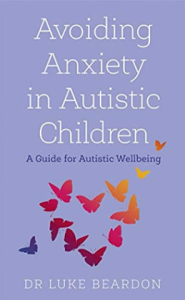
It’s an optimistic and readable guide that offers advice on how to support autistic children and young people who suffer from anxiety.
Autism in Childhood- For parents and carers of newly diagnosed- Dr Luke Beardon (for parents/carers of autistic children)
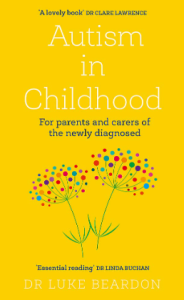
This book is written primarily for parents and helps increase understanding and give some practical tips on how to support children and young people with autism related difficulties. Being well supported in general can really help to reduce anxiety in autistic children.
Avoiding anxiety in autistic adults- A guide of autistic wellbeing- Dr Luke Beardon (for autistic adults)
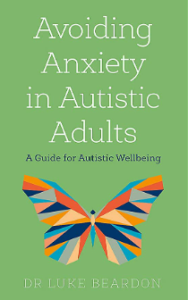
Described as ‘essential reading not just for any autistic adult, but for anyone who loves, lives with or works with an autistic person’
Cards against anxiety- Dr Pooky Knightsmith
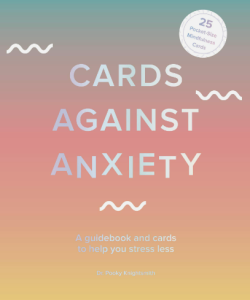
A 128 page book and a pack of 25 cards uses a variety of well-established techniques and controlled breathing practices that can help users stress less and combat anxiety and depression.
Designed for use on the go and around other people, there’s no need find the perfect quiet spot to meditate in and it is discreet enough to be used on packed public transport or in an open public space without compromising your privacy.
What to do When You Worry Too Much: A Kids’ Guide to Overcoming Anxiety- Dr Dawn Hueber
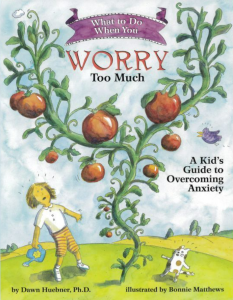
An interactive self-help book for kids aged 6-12 to use with support from an adult. Strategies are based on Cognitive Behavioural Therapy. Easy to follow, great illustrations.
Acceptance and Commitment Therapy (ACT) - Russ Harris
- The Happiness Trap
- The Confidence Gap
- The Reality Slap
For young people
Resources to support children's mental health on other Leicestershire Partnership Trust' websites
Health for Kids: Grownups CMHW hub: lptnhs.com/ChildrensMentalHealth
Health for Teens CMHW hub: lptnhs.com/TeenMentalHealth
Take a look at the support services and resources available to support young people with their emotional health
My Self Referral - Leicester, Leicestershire and Rutland
‘My Self-Referral’ is a new, simple and confidential way for young people to refer themselves for support for non-urgent or crisis cases without needing to see a GP or healthcare professional.
Click here to learn more about their mental health triage system
Health for teens
Health for teens provides information on feeling and emotional health aimed from age 11+. It covers topics such as low mood, emotional awareness, confidence, self-esteem and self care tips. The site has many different articles, quizzes, local information and a section on neurodiversity
- Health for Teens- Autism and anxiety
- Health for Teens- Autism and looking after your mental health
- Health for Teens- Autism and mindfulness
- Health for Teens- How to practice mindfulness
Young minds
Young minds is a mental health charity for younger people. Young minds contains practical advice for young people, parents/ carers and professionals as well as help to navigate support. In also includes a page on autism and mental health.
Tellmi
Tellmi provides free digital mental health support, 365 days a year (on Android, IOS, and the web).
Click this link to download the app:
It has been commissioned by our local Integrated Care Board and is available for anyone aged 11+ living within Leicester, Leicestershire or Rutland.
Tellmi is cost free and operates 365 days a year (on Android, IOS, and the web).
It enables people to help themselves by helping each other. The Tellmi community is anonymous and age-banded. All posts and replies are risk assessed by moderators and counsellors intervene when high-risk posts are made.
You can use filters to have conversations about particular topics such as autism or anxiety – or both.
For those seeking additional help, Tellmi offers 1-2-1 text-based, solution-focused therapy with a qualified therapist. This aims to help people think positively about their future and to identify their existing skills and strengths.
You can refer yourself for the 1:1 text-based therapy sessions by clicking the link below.
For a child or young person, a referral can be made by parents, carers or professionals.
Childline
Childline provides a free, online counselling service for children and young people
Children and young people can also speak to them over the phone, by calling this number:
They can also provide support via email and online chat service
For more information, click the following link:
The mix
The Mix offers online counselling and a has a crisis messenger for young people under the age of 25. You can contact them via their online community, on social media, through our free, confidential helpline (0808 808 4994) or their counselling service.
Every Mind Matters - NHS (www.nhs.uk)
Every Mind Matters Every Mind Matters’ helps young people be kind to their mind. It offers mental health resources include tailored advice, practical tips on sleep and self-care.
Love4Life
Love4Life specialises in supporting vulnerable girls develop their self-esteem and form positive and empowering relationships by offering Love4Life groups, one-to-ones and workshops at school and in the community. Love4Life accepts referrals from parents/guardians, schools and other support services. If you are young person aged 16-18 you can also refer yourself. This service is free.
Togetherness approach – free courses to support with emotional health and wellbeing for people who live in Leicester, Leicestershire and Rutland
Leicestershire Partnership NHS Trust have partnered with Togetherness to provide range of free online courses for teenagers and adults to help them understand and take care of their own emotional health and wellbeing
Modules can be accessed any time and worked through at your own pace
Courses for teenagers include:
- Understanding your brain
- Understanding your feelings
Courses for adults include:
- Understanding your relationships
- Understanding your own trauma
They also provide online courses to help parents, carers, family members and professionals improve the emotional l health and wellbeing of the children and young people they care for.
All courses are free for anyone with a Leicester, Leicestershire or Rutland postcode.
Users need to set up an online account and use the access word ‘CURVE’.
This will give them lifetime access to all current and future courses.
For more information, including how to register and access the courses, please click here
Services and resources to help families, carers and professionals improve the mental health and wellbeing of autistic people
ToothPASTE Study – Supporting autistic children's oral health
ToothPASTE is a free online resource created with parents and professionals to support autistic children’s oral health.
It is also helpful for many children with additional needs.
The resource includes small, practical steps to help with:
- Toothbrushing
- Reducing sugary foods and drinks
- Attending dental appointments
The materials are autism‑informed, non‑judgemental, and simple to use.
You can also learn more about the research behind ToothPASTE.
For more information, please contact: A.Chauhan@leeds.ac.uk
Newbold Hope
Newbold Hope is a website for parents and professionals who support children and young people with disabilities or additional needs.
They provide resources so that adults can support children and young people to feel safe and comfortable – and therefore reduce violent, difficult and dangerous behaviour.
They also aim to change improve understanding and compassion and reduce prejudice for families in this situation.
talk²sort Mediation – The Bridge (East Midlands)
The talk²sort Mediation Service works with young people aged 11–19 (up to 25 with additional needs) and their families who may be experiencing problems at home or in their relationships.
It is delivered by The Bridge (East Midlands), a local charity supporting communities across Leicester, Leicestershire and Rutland.
The service is free and aims to reduce the likelihood of youth homelessness by tackling its leading cause: family breakdown. Mediation helps people explore ways of resolving conflict, improving communication and enhancing wellbeing.
Sessions can take place at school, at home, or in the community. They may involve young people, siblings, parents, or joint sessions.
Issues commonly addressed include:
– Arguments and disagreements
– Breakdown in communication or relationships
– Behavioural concerns
– Substance misuse
– Criminal or antisocial behaviour
– Managing anger
– Mental health and emotional wellbeing
– Not being in education, employment or training
– Verbal or physical aggression
Referrals can be made directly by young people, parents, carers, or professionals.
Click the link below to make a referral:
talk²sort Mediation Referral
Togetherness – free courses to support with emotional health and wellbeing for people who live in Leicester, Leicestershire and Rutland
Leicestershire Partnership NHS Trust have partnered with Togetherness to provide range of free online courses to help parents, carers, family members and professionals improve the emotional l health and wellbeing of the children and young people they care for.
They also provide a number of courses for teenagers and adults to help them understand and take care of their own emotional health and wellbeing
The parenting courses cover a range of areas – and each have numerous modules which can be accessed and worked through at your own pace. These include:
- Understanding the impact of the pandemic on your teenager
- Understanding pregnancy, labour, birth and your baby
- Understanding your baby
- Understanding your child – 0-19 years
- Understanding your child with additional needs
- Understanding your teenager’s brain
- Understanding your brain
- Understanding your child’s feelings
- Understanding your child’s mental health and wellbeing
- Understanding your relationships
Courses for teenagers include:
- Understanding your brain
- Understanding your feelings
Courses for adults include:
- Understanding your relationships
- Understanding your own trauma
All courses are free for anyone with a Leicester, Leicestershire or Rutland postcode.
Users need to set up an online account and use the access word ‘CURVE’.
This will give them lifetime access to all current and future courses.
For more information, including how to register and access the courses, please click here
Services and resources for supporting the emotional health and well-being of parents and carers
Care uk
A wide range of factsheets and guides to explain what support may be available to help ease caring responsibilities. Includes information for working carers
Support for carers
Support for Carers, recognises the difficulties and challenges that carers are facing on a daily basis and the importance of carer recognition.
Support for Carers, understands that carer recognition is key to ensuring you receive the help and support you need at the right time to support you in your caring role. Through provision of the carers passport, this will aid in that recognition.
Please contact us on 01858 468543 or email maureen@supportforcarers.org if you would like further information.
How to apply for a Carers Passport for Leicester, Leicestershire and Rutland
Click here to find out more:
https://www.supportforcarers.org/what-we-offer/carers-passport
Contact
Contact is a charity that provides information, advice and support to parents and carers of disabled children and young people from birth to 25, living in any part of the UK. Practical and emotional support, locally and nationally
For individual emotional support, there is the Listening Ear telephone support service.
If you need practical advice, emotional support, a shoulder to cry on, a safe place to vent, whatever it is-they can try to help.
Click here to talk to one of the parent carers – they can offer 1:1 telephone appointments for parent carers looking for emotional support:
__________________________________________________________________________________________________________________________________________
The Leicestershire Partnership Trust cannot be held responsible for any damage or loss caused by any inaccuracy on linked sites or pages. The Leicestershire Partnership Trust cannot control and is not responsible for the privacy practices of any site to which a link is provided. It is recommended that you read the privacy policy of any site you visit, particularly if you are asked to give personal data.


